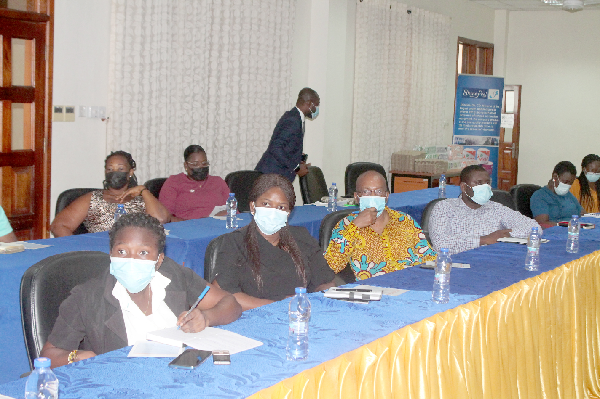
BoG directs banks on environmental risks
The Bank of Ghana (BoG) has directed banks and other financial institutions to put in place robust environmental and social (E&S) risk management practices to ensure sustainability.
The Deputy Chief, Banking Supervision, at the BoG, Mr Stephen Armah, said banks whose financing activities had implications on the environment should adopt some principles that would guide their dealings.
He explained that the BoG was supporting the entire concept of promoting a green economic sustainability because it appreciated the effect of E&S issues such as climate change on financial stability.
“There are serious implications on macro parameters if food prices double as research has shown. So, all financial institutions where you get loans from are all exposed to the macro environment, and if it deteriorates, of course, it will reflect on the interest rate that you get.
“All these E&S issues present risks for banks to manage, so it is a big issue for the central bank to push the agenda,” he stated at a Green Finance Champions Event (GFCE) organised by the University of Ghana Business School — Executive Development (UGBS-ED) Unit, in collaboration with the United Nations Institute for Training and Research (UNITAR) and Partnership for Action for Green Economy (PAGE) in Accra.
He said the banks, in assessing credit risks, would need to look at the E&S risks and how the customer would mitigate the effect clearly.
“From the BoG perspective, the policy is not to say that banks should not finance certain activities, but we are saying the concept is for long-term profit as incentives with due regard for E&S and governance issues,” he said.
Global risk
Mr Armah noted that five out of the top 10 risks over the next 10 years were on environmental issues such as climate change, biodiversity loss, extreme weather, natural disasters and human beings.
Consequently, the BoG, in collaboration with some stakeholders, introduced a set of principles for adoption by banks as part of its commitment to the Sustainable Development Goals (SDGs) of the United Nations.
“For now, the principles apply to sectors, namely agriculture and forestry, construction and real estate, manufacturing, power, energy and mining, and oil and gas. We believe these sectors expose the banks’ E&S risks, and they should assess on ongoing basis in whatever is undertaken,” he said.
Mr Armah said as banks pushed the green agenda, they would attract funds from international financial institutions, improve quality of loan portfolio, credibility, brand value and profit.
“All these will enhance banking sector resilience. Also, a green economy creates jobs as there are a lot of opportunities within. We will continue to create the necessary environment for this to thrive,” he added.
Green champions
The GFCE was to recognise champions within the green economy space.
The Dean of the UGBS, Prof. Justice Nyigmah Bawole, said the workshop was the climax of the several international partnerships and collaborations struck by the school as it sought to transform by connecting with its stakeholders.
“We believe that our products are working in almost all institutions nationwide, and so we think that we need to connect. We live within the ecosystem too and so we try to focus on the problems that Ghanaian businesses and corporate sector face, and what Ghanaians in society also face.
“After all, the essence of business is the micro unit, which is the individual who goes to the family,” he said.
He added that the school sought to multiply the number of people who were speaking up on the issue of green economy.
The facilitator of the Green Champions Event, Prof. Albert Ahenkan, said finance was a challenge to the agric sector due to the lack of data.
“So the government and private sector should collaborate with academia to build capacity in climate financing to translate into energy recovery and recycling, among others,” he said.
